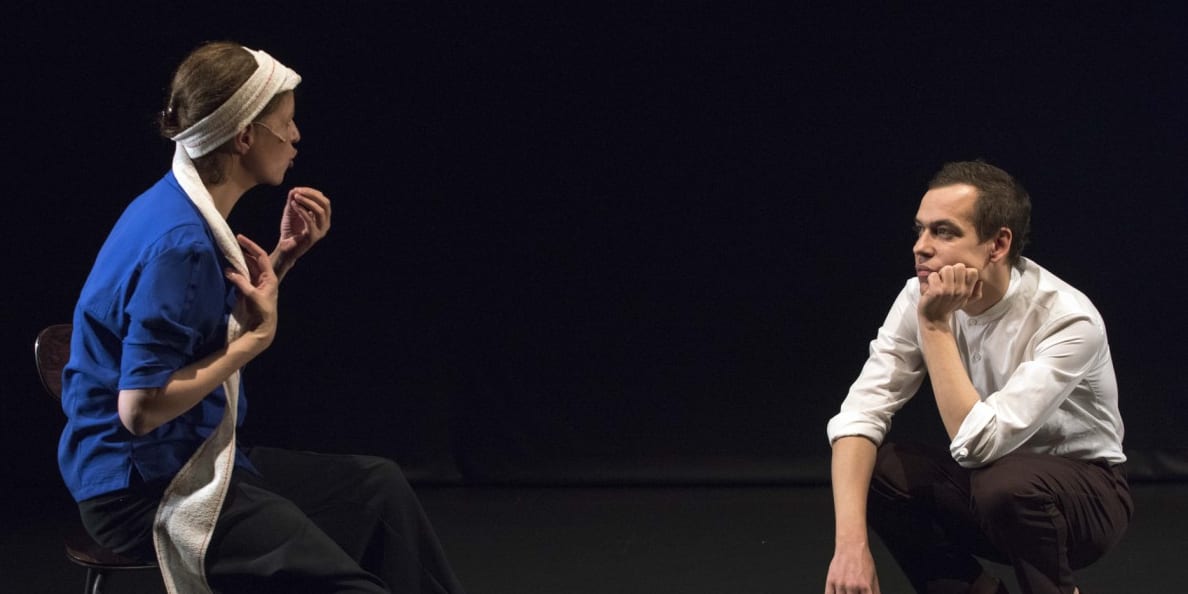According to its writer, director, and performer Myriam Saduis, Final Cut should not be called a show, and not even a performance. Instead, she suggests to describe it as something ‘unstable, between a historic conference and the comical tale of a life’.
Myriam Saduis, in a very intimate way, forges a strong link between her and the public, using nothing but her hard-hitting words, backed by her deep voice and her intense look. She tells her story, the story of a child who was hidden the truth for too long, torn between her unknown Tunisian father and her overprotective Italian mother who chose to raise her in France. The story is terrible and spine-chilling, but she tells it with a lot of humour, easily turning imperialist mentalities into ridiculous concepts.
She cunningly makes her story resonates with History, through the mention of some historical facts that serve as brutal reminders. History also manifests itself through culture, which is very important in Final Cut. She sings The Umbrellas of Cherbourg, her voice making Jacques Demy’s words illustrate the heartbreak caused by war, or the mother’s disapproval of a hasty wedding.
Just like a film director, Myriam Saduis, gets to have the final cut of her story: she gets to tell it from her point of view, and to decide what happens in the end. The title is also a reference to her father being forever cut out of family pictures and of her life. The ending of Final Cut results in an emotional climax: Myriam reenacts the moment she got to visit her father’s grave, while his presence, embodied by Pierre Verplancken, guides her and follows her at the same time on stage.
Then, using the emotional power that photography can provide, she screens a picture of her parents, and zooms in until the contours become blurry and all we can see is the void between the parents’ heads… and cut.
Summary in French:
Avec Final Cut qu’elle ne considère ni comme un spectacle, ni comme une performance, Myriam Saduis livre sobrement et puissamment son histoire : celle d’une enfance déracinée, d’une famille brisée, d’un père qui lui a été caché. Tournant en dérision les mentalités colonialistes et s’appuyant sur des références culturelles (Jacques Demy, Marguerite Duras, Tchekhov) pour conter son histoire, elle rend cette histoire sombre et personnelle accessible au public qui ne peut se détacher de ses mots une seule seconde.

